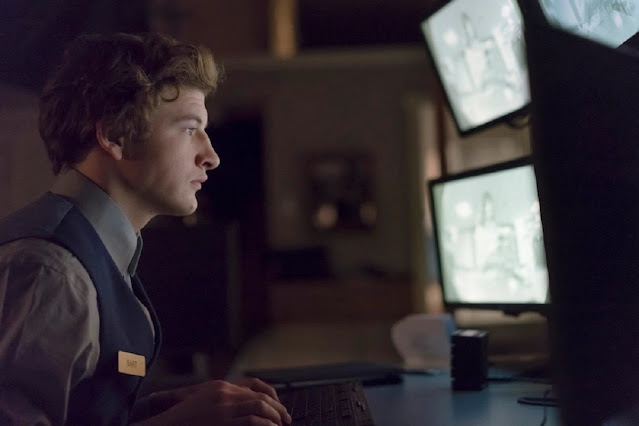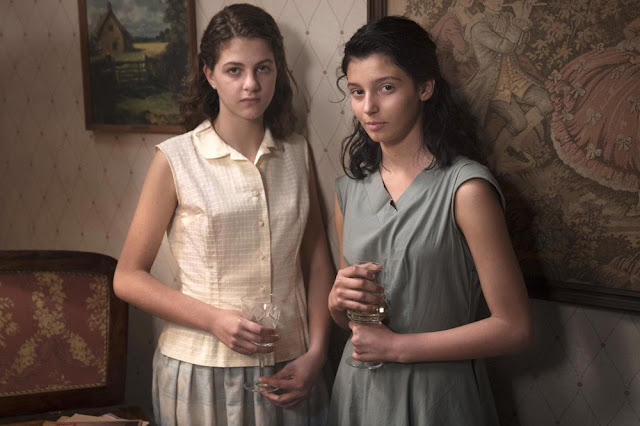El agente topo / The Mole Agent
¿Qué es real, ficcional o metaficcional en este documental? ¿Hasta dónde están dispuestos a llegar los documentalistas para filmar aquello y a aquéllos que investigan? ¿Cuáles son los límites éticos?
Este documental de la realizadora chilena Maite Alberdi plantea numerosos elementos para el análisis y el debate, algunos francamente incómodos.
¿Qué es real, ficcional o metaficcional en este documental? ¿Hasta dónde están dispuestos a llegar los documentalistas para filmar aquello y a aquéllos que investigan? ¿Cuáles son los límites éticos?
He leído notas acerca de cómo se filmó este documental y reportajes a su realizadora (donde cada vez dice otra cosa) que distaron de tranquilizarme.
La agencia de detectives y su director son reales, así como el casting que realizan para elegir a Sergio como topo. También es real la “misión” que le encomiendan. El geriátrico ya había aceptado previamente la presencia de cámaras para la filmación de un documental.
Pero lamentablemente todo El agente topo está montado sobe un engaño, sobre una manipulación. Más que un infiltrado de la agencia de detectives, Sergio es un infiltrado de la directora, que cambia el foco y comienza a interesarse por los diálogos y testimonios que genera con las ancianas del geriátrico. Y como todo topo, engaña acerca de su identidad y sus objetivos a todas las compañeras que empiezan a vincularse con él, que por cierto es una persona encantadora.
¿En qué medida saben estas mujeres que lo que expresan (y a un impostor) está siendo filmado? Personas frágiles, algunas de ellas ya con signos de deterioro cognitivo.
Los momentos detectivescos son
graciosos y los diálogos con las ancianas van de lo pintoresco a lo
conmovedor.
Pero no me queda claro el objetivo
de todo este montaje:
1)
¿Reflejar la cotidianeidad de un geriátrico?
2)
¿Darles voz a personas que en general no la
tienen?
3) ¿Un testimonio para sensibilizar a la audiencia acerca de cómo los ancianos y ancianas en general sufren en estas instituciones de soledad, depresión y abandono por parte de sus familiares? ¿Es esto realmente una novedad?
Terminé de ver
este documental con una sensación de incomodidad cercana a la indignación: la
de haber presenciado una desleal invasión a la privacidad de un grupo de
ancianas para exhibir su dolor y su deterioro y servir, en definitiva, como instrumentos para
el lucimiento de la directora y de su dispositivo cinematográfico, de un experimento. Y con la
perplejidad de que casi nadie (y sobre todo los críticos y jurados de festivales) se haya planteado estas cuestiones (vinculadas al tema del consentimiento, muy confuso en este caso) o las minimice.
Y mi sensación sigue siendo la misma.
...................................................................................................................................................
What is
real, fictional or metafictional in this documentary? How far are documentary
makers willing to go to film that and those they investigate? What are the
ethical limits?
A lady (who does not appear on camera) hires the services of a detective agency to find out how they treat her mother, admitted to a nursing home. This documentary follows in the footsteps of Sergio, an eighty-something man hired by the agency to infiltrate the nursing home as a resident and carry out the investigation.
This documentary by the Chilean Maite Alberdi raises numerous elements for analysis and debate, some frankly uncomfortable.
What is real, fictional or metafictional in this documentary? How far are documentary makers willing to go to film that and those they investigate? What are the ethical limits?
I have read notes about how this documentary was filmed and a report to its director that were far from reassuring me.
The detective agency and its director are real, as well as the casting they carry out to choose Sergio as a mole. The "mission" entrusted to him is also real. The nursing home had previously accepted the presence of cameras for the filming of a documentary.
But unfortunately the entire Mole Agent is mounted on a hoax. More than an infiltrator of the detective agency, Sergio is an infiltrator of the director, who changes the focus and begins to be interested in the dialogues and testimonies of the elderly women in the nursing home. And like any mole, he deceives about his identity and his goals to all the companions who begin to bond with him, who by the way is a charming person.
To what extent do these women know that what they express (and to an impostor) is being filmed? Frail people, some of them already with signs of cognitive decline.
The detective moments they have are hilarious and the old ladies'
speeches range from quaint to poignant.
But the purpose of this whole montage is not clear to me:
1) Reflect the daily life of a nursing home?
2) Give a voice to people who generally don't have it?
3) A testimony to sensitize the audience about how the elderly in general suffer in these institutions of loneliness, depression and abandonment by their families? Is this really a novelty?
I finished watching this documentary with a feeling of discomfort close to indignation: that of having witnessed a disloyal invasion of the privacy of a group of elderly women to display their pain and serve, in short, as instruments for showing off the director and her cinematic device, her experiment. And with the perplexity that almost no one has asked these questions.
And
my feeling remains the same.




Comentarios
Publicar un comentario
Mensajes sujetos a moderación